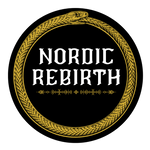LORE RSS
The Vanir
In Norse Mythology, the Vanir are from the land of Vanaheimr, or "Home of the Vanir". After the AEsir - Vanir war, the Vanir were absolved into the Aesir, in which an alliance was made with Óðinn (Odin). The Vanir are a group of gods associated with wisdom, fertility, and the ability to peer into the future. The god Njörðr (Njord), with his children Freyja & Freyr, are also Vanir, as well as the Heimskringla adding that Njörðr's sister - unnamed - and Kvasir are as well. The Heimskringla tells a tale of King Svegðir's visit to Vanaheimr, meeting a woman named...
The Titan's Goblet
"The culmination of Cole's romantic fantasies, this work echoes the artist's other works of the period in its Italian derived scenery and its attempt to illustrate themes dealing with the grandeur of the past, the passage of time, and the encroachment of nature. Rejected by Cole's patron, Luman Reed, and subsequently owned by the artist John M. Falconer, the work defies full explanation. The massive, vegetation encrusted goblet around whose rim are found classical ruins, and on whose glassy surface boats sail, has been linked to Norse legend and Greek mythology. Theophilus Stringfellow, Jr. described it as a self-contained, microcosmic...
Bind Runes
A bind rune (Icelandic: bandrún) is a ligature of two or more runes. They are extremely rare in Viking Age inscriptions, but are common in earlier (Proto-Norse) and later (medieval) inscriptions. On some runestones, bind runes may have been ornamental and used to highlight the name of the carver. There are two types of bind runes. Normal bind runes are formed of two (or rarely three) adjacent runes which are joined together to form a single conjoined glyph, usually sharing a common vertical stroke (see Hadda example below). Another type of bind rune called a same-stave rune, which is common in Scandinavian runic inscriptions but does not occur at all in Anglo-Saxon runic...
Vegvisir
The Vegvisir is an ancient Icelandic magical stave. It is intended to help the bearer find their way through harsh weather. The Huld manuscript, collected in 1880, in Iceland by Geir Vigfusson has a page referring to it's use, name, and other lost knowledge. However, it is believed to originate much further back in history, to times when such things had yet to be written down and collected. It states "if this sign is carried, one will never lose one's way in storms or bad weather, even when the way is unknown." Think of it as intuition & your heart's...
Thor
Thor (/θɔːr/; from Old Norse: Þórr, runic ᚦᚢᚱ þur) Son of Odin. God of Thunder & Lightning. Wielding the iconic Mjölnir, he also has lesser known, but just as powerful items. The belt Megingjörð, which doubles his already impressive strength. A pair of iron gloves, Járngreipr, giving him the ability to wield the mighty Mjölnir. As well as giving him the strength of 20 men. The staff Gríðarvölr, from the giants, but that's a tale for another time.. Thor is also prophesized to do battle with the World-Serpent, Jörmungandr, during Ragnarok.


